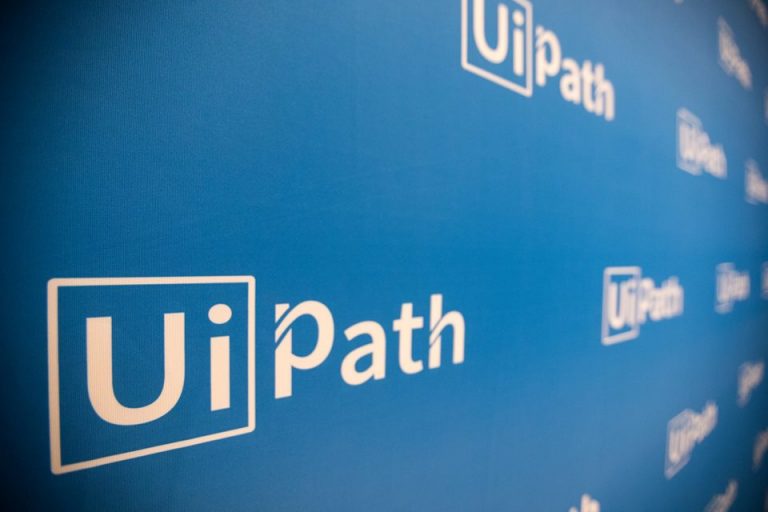 AI
AI
 AI
AI
 AI
AI
Robotic process automation company UiPath Inc.’s valuation stretched beyond the $10 billion mark today after it raised $225 million in a late-stage round of funding.
The Series E round was led by Alkeon Capital Management, with participation from Accel, Coatue, Dragoneer, IVP, Madrona Venture Group, Sequoia Capital, Tencent, Tiger Global, Wellington and funds and accounts advised by T. Rowe Price Associates Inc.
UiPath, which has raised more than a billion dollars in funding to date, has become a magnet for venture capital cash thanks to a leading position in the RPA market, which is a subset of artificial intelligence that involves using software robots to observe workflows in common business applications and then deduce ways to automate repetitive tasks.
UiPath builds robots that monitor users’ individual keystrokes as they interact with applications such as enterprise resource planning and customer relationship management tools, identifying repetitive patterns and suggesting ways to automate them. Eliminating a few keystrokes may seem trivial, but the savings can be enormous when applied to hundreds or thousands of users over long periods of time. Automation also reduces errors and improves speed.
The company offers an extensive ecosystem around RPA as well, offering free training programs, a no-cost community edition and free online forums for developers. It also has its own marketplace for its AI tools and services.
UiPath’s automation tools are already in big demand, but with the COVID-19 pandemic wreaking havoc with enterprises all over the world, interest is only likely to grow as companies look for ways to mitigate future risks to the productivity of their human workforces.
Although it’s tough to put a finger on exactly how much demand there will be for UiPath’s RPA tools in the future, Dave Vellante, chief analyst with SiliconANGLE sister market research firm Wikibon, recently estimated that the broader automation market could well be a massive $100 billion opportunity as AI-powered automation becomes a fundamental part of every organization’s operating model.
That helps to explain why investors are so keen to throw their money at UiPath, which has established itself as one of the leaders in the RPA segment, reporting more than $400 million in annual recurring revenue last year.
In an interview with SiliconANGLE, Vijay Khanna, UiPath’s chief corporate development officer, said the company expects to be cash-flow-positive by the end of the year and didn’t actually need the money to keep things ticking over. Ultimately, it wants to fulfill its long-standing promise of having “a bot for every person,” freeing up every worker from having to perform mundane tasks, Khanna said.
“When it comes to digital transformation, the first thing people look at is their processes and how to automate them,” Khanna said. “In three to five years from now, it will be obvious that it’s how you change the way people do work. [RPA] is the next big opportunity after mobile.”
UiPath may also see the cash as a way to stay one step ahead of its rivals in the RPA market, which is fast becoming a hotly contested one. In recent months, big names such as Microsoft Corp. and IBM Corp. have made significant acquisitions to boost their own presence in the RPA market.
In May, Microsoft bought a company called Softomotive Ltd., which sells tools that allows companies to automate repetitive activities that workers perform on their Windows machines. The plan is to integrate Softomotive’s capabilities with its existing RPA platform, Power Automate. As for IBM, it bought the Brazilian RPA firm WDG Automation Inc. Ltd. in June and said it will integrate that company’s pre-built automations into its Cloud Pak for Automation tools.
“We’ve seen two big incumbent companies, Microsoft and IBM, enter the RPA market in the past couple of months,” Vellante said. “This will put pressure on the two leaders, UiPath and Automation Anywhere, and I suspect this cash is a way to invest in product and engineering to try to stay ahead.”
Indeed, that’s exactly what UiPath intends to do. In order to make its dream of a robot for every person possible, the company needs more money to fund the ongoing development of its RPA tools, and Khanna said one of its main areas of focus will be on low-code programming, making it possible for workers to build their own applications on the fly that can perform various day-to-day tasks.
In addition, UiPath also wants to step up cloud delivery of its automation tools in order to compete better with its rivals. “Cloud is a very big priority for us,” Khanna said.
With so much money in the bank, the next funding step for UiPath could be to go public with an initial public offering. The company has in the past made no secret of its desire to do so one day. Khanna reiterated Chief Executive Daniel Dines’ expectation that although it had expected to go public by 2022, the pandemic potentially could move up the timetable.
“It’s an aspiration, and something we are looking at when the timing is right,” Khanna said. “A lot of things have to come in place. It’s a matter of priorities, when we have so much customer demand.”
Dines appeared on theCUBE, SiliconANGLE’s livestreaming studio, at last October’s FORWARD III event, where he talked more about the company’s vision of “A Robot for Every Person”:
With reporting by Robert Hof
Support our mission to keep content open and free by engaging with theCUBE community. Join theCUBE’s Alumni Trust Network, where technology leaders connect, share intelligence and create opportunities.
Founded by tech visionaries John Furrier and Dave Vellante, SiliconANGLE Media has built a dynamic ecosystem of industry-leading digital media brands that reach 15+ million elite tech professionals. Our new proprietary theCUBE AI Video Cloud is breaking ground in audience interaction, leveraging theCUBEai.com neural network to help technology companies make data-driven decisions and stay at the forefront of industry conversations.